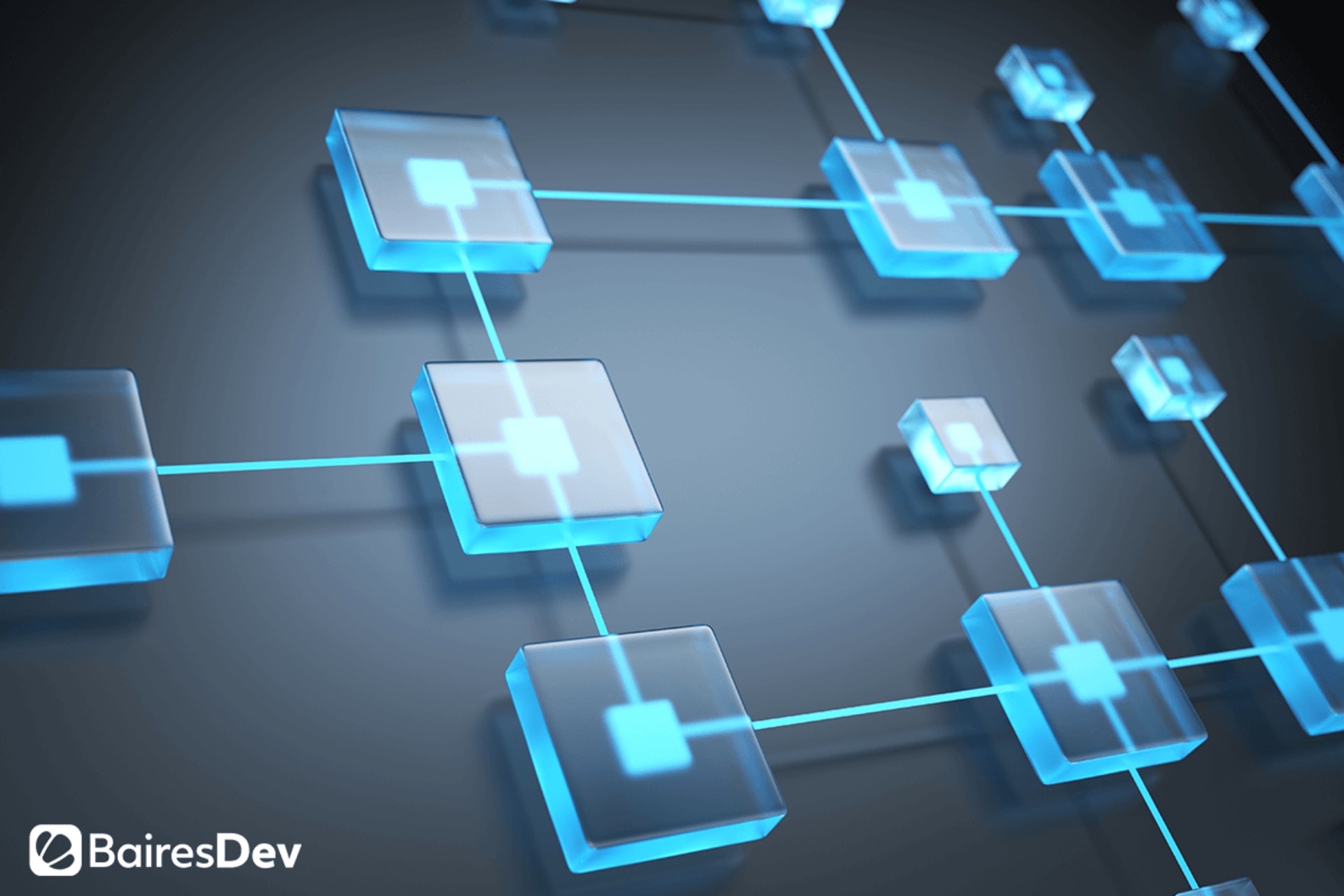Defi Development Company
Our decentralized finance (DeFi) development services already support the systems of leading companies and financial institutions. With 4,000+ engineers on staff, we can craft custom decentralized solutions that prepare you for the future of finance.
500+ companies rely on our top 1% tech talent.
DeFi Development Services We Provide
Custom DeFi Platform Development
A custom DeFi platform allows you access to a decentralized financial system that can offer unique features for clients and customers, including unique lending, borrowing, or exchange services tailored to your market needs.
We build platforms from scratch using top blockchain frameworks like Ethereum, Binance Smart Chain, and Polkadot. Our agile approach delivers key features quickly, while modular designs enhance scalability. Rigorous testing secures integration and creates smooth user experiences.
Smart Contract Development and Auditing
Smart contracts power DeFi platforms by enabling automated, trustless transactions based on predefined rules. Developing and auditing these contracts strengthens operational transparency, boosts user confidence, and reduces vulnerabilities that could lead to financial risks.
We write smart contracts using leading languages like Solidity (Ethereum) and Rust (Solana). Each contract undergoes rigorous testing in simulated environments with tools like Hardhat or Truffle to validate platform readiness. For audits, we combine manual code reviews with automated tools such as MythX, identifying vulnerabilities and aligning with industry standards.
Integrating DeFi with Existing Blockchain Protocols
Connecting your DeFi platform to established blockchain networks leverages existing infrastructure and user bases, expanding your reach while maintaining compatibility with pre-existing ecosystems.
We set up nodes and use RPC endpoints to enable seamless communication between your platform and the blockchain. Our team optimizes performance and minimizes latency, delivering smooth operation. With extensive experience across major blockchain systems, our developers execute integrations with precision and efficiency.
Tokenomics Design and Token Development
Tokens can represent one of the most innovative solutions in decentralized exchange development. If you’re hoping to establish a token-based system, tokenomics design is critical for incentivizing user participation and fostering a sustainable ecosystem for your users.
We create custom DeFi tokens aligned with your platform’s goals, from governance to liquidity management. Our tailored smart contracts undergo rigorous testing to deliver secure, efficient, and compatible solutions that integrate with your DeFi applications.
Cross-Chain Bridging Solutions
Cross-chain bridges allow for financial transactions and asset transfers between different blockchain networks and DeFi applications. These can broaden the appeal of your platform while also enhancing liquidity. These cross-bridge chains can also support those looking to establish a global DeFi market.
Our developers implement bridging solutions using APIs and SDKs from platforms like ChainBridge or Wormhole. We use cryptographic algorithms to support the secure transfer of assets across different DeFi software and blockchain systems. This results in a stronger peer-to-peer network and further opportunities for DeFi transactions.
DeFi Wallet Development
Secure and feature-rich DeFi wallets can enhance user experience by providing safe storage for DeFi tokens while allowing your users to manage their digital assets from a single location. Supporting a diverse array of DeFi tokens and chains allows for a broader adoption of your DeFi system and can lead to greater user retention.
As a top DeFi development company, we develop multi-chain wallets using libraries like WalletConnect, enabling integration with various blockchains. Security is prioritized across all of our DeFi wallet development projects through encryption, hardware wallet support, and biometric authentication. Our developers test all DeFi wallets with various tokens and perform penetration tests to secure them.
Rolls Royce case study
Rolls Royce turned to BairesDev to develop an efficient, user-friendly mobile app. A two-week discovery process with the Rolls Royce product owner identified a comprehensive list of functionalities, data streams, and displays required to meet their clients’ expectations for a mobile SDS. Read the entire Rolls Royce case study.

Key Things to Know About DeFi
Best Practices for DeFi Development
Security vulnerabilities can lead to significant financial losses and reputational damage, so it's essential that developers prioritize security across all aspects of DeFi software.
Conducting penetration testing before launching DeFi technology, and intermittently while the platform is live, can prepare the system for potential attacks.
A Defi development project isn’t over after launch. Developers should constantly monitor the DeFi platform and update their DeFi solutions.
Smart contracts are only an effective, secure solution if they’ve been substantially audited and tested in real-world scenarios.
Using standardized frameworks makes DeFi solutions easier to modify and less likely to exhibit exploits. This approach also allows more developers to join a project and support the development of the DeFi lending platform.
Trusted libraries are used for a reason. Use OpenZepplin or other standardized options for development of DeFi smart contracts.
Regardless of the frameworks you choose to use, make sure security is at the forefront of the development cycle.
Creating token libraries from scratch can lead to security concerns if not managed effectively; instead, rely on importing existing libraries.
Though it should always come second to security, a leading DeFi development company should also prioritize user experience when engaging in DeFi development services.
Any workflows used to support a DeFi project should also consider non-technical users. This makes the user experience smoother and allows developers to keep stakeholders in the loop.
Wallets are often how users interact with a decentralized finance space. Design wallets alongside the platform itself and offer ongoing support to maintain them and the rest of your DeFi products.
Drafting an extensive onboarding guide ahead of time can prepare users and technical teams for the DeFi software launch. This guide should detail how the financial instruments across your platform work and how users can perform tasks like a DeFi crypto exchange.
Why Choose BairesDev for DeFi Development

Robust Security Measures
Above everything else, DeFi platform development has to be secure. Decentralized financial operations transfer assets and finances worth vast amounts every day. We work every day to become the best DeFi development company possible, and much of that effort involves security. Our developers prioritize security across every stage of the process and will only offer other DeFi development services if we can keep them protected.
Custom DeFi Solutions
One of the core benefits of decentralized exchange development and a DeFi project is the ability to deploy core technology infrastructure designed specifically for your unique needs. We’re an experienced decentralized finance development company that can prioritize your business goals across our entire platform development. We can also offer ongoing support to scale and improve your solution over time.
Top 1% of Tech Talent
Our expert DeFi developers have all gone through an extensive recruitment process. We only work with the leading 1% of candidates so that any DeFi development services we provide can deliver for our clients and their business goals. Whether you need smart contract development or a DeFi development company that can build a custom solution, you’ll be working with some of the leading tech talent in the world.
Our process. Simple, seamless, streamlined.
During our first discussion, we'll delve into your business goals, budget, and timeline. This stage helps us gauge whether you’ll need a dedicated software development team or one of our other engagement models (staff augmentation or end-to-end software outsourcing).
We’ll formulate a detailed strategy that outlines our approach to backend development, aligned with your specific needs and chosen engagement model. Get a team of top 1% specialists working for you.
With the strategy in place and the team assembled, we'll commence work. As we navigate through the development phase, we commit to regularly updating you on the progress, keeping a close eye on vital metrics to ensure transparency and alignment with your goals.
Frequently Asked Questions
How does DeFi differ from traditional finance?
Unlike traditional finance, which relies on centralized institutions to manage funds and transactions, DeFi uses blockchain technology and smart contracts to automate these processes. A DeFi app can therefore remove intermediaries, lower costs, increase transparency, and enable anyone with an internet connection to access financial services. This is why DeFi is preferred for certain activities and financial instruments, like people wanting to facilitate a crypto exchange.
How do smart contracts work in DeFi?
Smart contracts are self-executing programs stored on the blockchain. They’re first designed with strict criteria based on the needs of different real-world agreements, like insurance contracts or asset exchanges. Once these predefined conditions are met, smart contracts can automatically enforce the terms of this agreement. This can make them a faster, more secure way of transferring assets or funds across a DeFi system.
For example, a smart contract can automatically transfer funds from a borrower to a lender after collateral is locked. Smart contracts are the main way that transactions are handled across a DeFi app, as they offer a streamlined way of conducting a decentralized exchange.
Which blockchains are most popular for DeFi?
Ethereum is the leading blockchain for DeFi, and has become well-known for its robust ecosystem and support for smart contracts. Since its launch in 2015, the development of decentralized financial solutions has evolved substantially.
However, as long as you’re working with a talented DeFi development company that can provide extensive DeFi development services, you’ll be able to use any blockchain system to establish your own DeFi service. Other popular blockchains include Binance Smart Chain, Solana, Polygon, Avalanche, and Cardano, among others. Our developers have worked with all current popular blockchains when offering custom DeFi development services.
What is yield farming?
Yield farming involves providing liquidity to DeFi platforms in exchange for rewards, typically paid in cryptocurrency. Users deposit funds into liquidity pools, which are used to facilitate trading, lending, or borrowing. In return, they earn interest, fees, or additional tokens which can serve as a form of passive income in certain cases.
Yield farming is a popular alternative to traditional savings accounts for some people, as they can offer higher returns, and due to this ability to provide a form of passive income. If you want to become a DeFi company that can offer yield farming opportunities to users, it's vital that you work with an experienced DeFi development company. You’ll likely need to invest in DeFi smart contract development, as well as further DeFi development services linked to tokens.
What are DeFi tokens?
DeFi tokens are digital assets used within decentralized finance ecosystems to allow users to facilitate various financial activities such as staking, governance, and liquidity provision. Sometimes these tokens are used for governing decisions made across a DeFi platform; in these cases, they’re known as governance tokens. These tokens often represent ownership in a platform, give holders voting power in governance decisions, or act as incentives for liquidity providers.
What are liquidity pools in DeFi?
Liquidity pools are pools of funds supplied by users (liquidity providers) to decentralized exchanges (DEXs) or lending protocols. These pools facilitate trading and borrowing activities without needing a centralized order book, allowing them to support th decentralized nature of these platforms.
In exchange for providing liquidity, users will usually receive a share of the transaction fees or interest earned from platform users when making exchanges. Liquidity pools have become a fundamental part of many of today’s best-known DeFi protocols, such as Uniswap, Aave, and Compound.
How is DeFi currently regulated?
DeFi operates in a relatively unregulated environment compared to traditional financial systems, but this is gradually changing as governments and regulatory bodies begin to understand and address the risks and challenges of decentralized finance.
The regulatory landscape for DeFi varies widely across jurisdictions, and while some countries have introduced specific regulations, others are still exploring how to approach this rapidly growing sector. It’s highly likely that, eventually, each country will have its own rules for what is and isn’t allowed across DeFi platforms. You must research how DeFi is regulated in your country of origin before you commence with any DeFi development services. It may be worth also discussing this with your legal department before you start a project.
What does the future of DeFi look like?
DeFi has rapidly transformed from an experimental niche in the cryptocurrency ecosystem to a robust, multi-billion-dollar sector. DeFi is expected to evolve into the future of finance, with notable advancements in technology, scalability, and how this unique form of exchange development is regulated. Though DeFi trends are impossible to fully predict accurately, the following developments may be made in the future.
For starters, likely, DeFi will further integrate with traditional financial systems. We already see early examples of this, such as banks experimenting with blockchain technology for payments or tokenizing assets. Cross-chain interoperability is also likely to become a more important factor in DeFi development in the coming years as users look to move data and assets across different blockchains. The security offered by DeFi is also constantly evolving and will continue to do so in the future.
How do DeFi projects generate revenue?
DeFi projects generate revenue through several innovative models that leverage the decentralized nature of the blockchain ecosystem. These include transaction fees, lending or borrowing spreads, staking rewards, and token-based mechanisms.
For example, decentralized exchanges (DEXs) like Uniswap charge a small percentage on each trade facilitated through their liquidity pools. Lending protocols such as Aave or Compound earn revenue by collecting interest rate differences between borrowers and lenders. Staking rewards also contribute to revenue generation, as users lock their assets in liquidity pools or validator nodes and earn a share of network fees or new token issuance.
Additionally, many DeFi platforms issue native tokens, which can gain value as the platform grows in popularity and utility. These tokens are often used for governance, incentivizing liquidity, or rewarding early adopters. A DeFi development company can help you design custom revenue streams tailored to your platform’s goals, ensuring a sustainable and scalable business model while addressing your users’ needs.
By utilizing these diverse strategies, DeFi solution can not only sustain operations but also drive long-term value for both users and stakeholders.
How Businesses Can Overcome the Software Development Shortage
BairesDev Ranked as one of the Fastest-Growing Companies in the US by Inc. 5000

See how we can help.Schedule a Call










